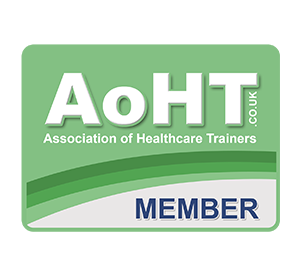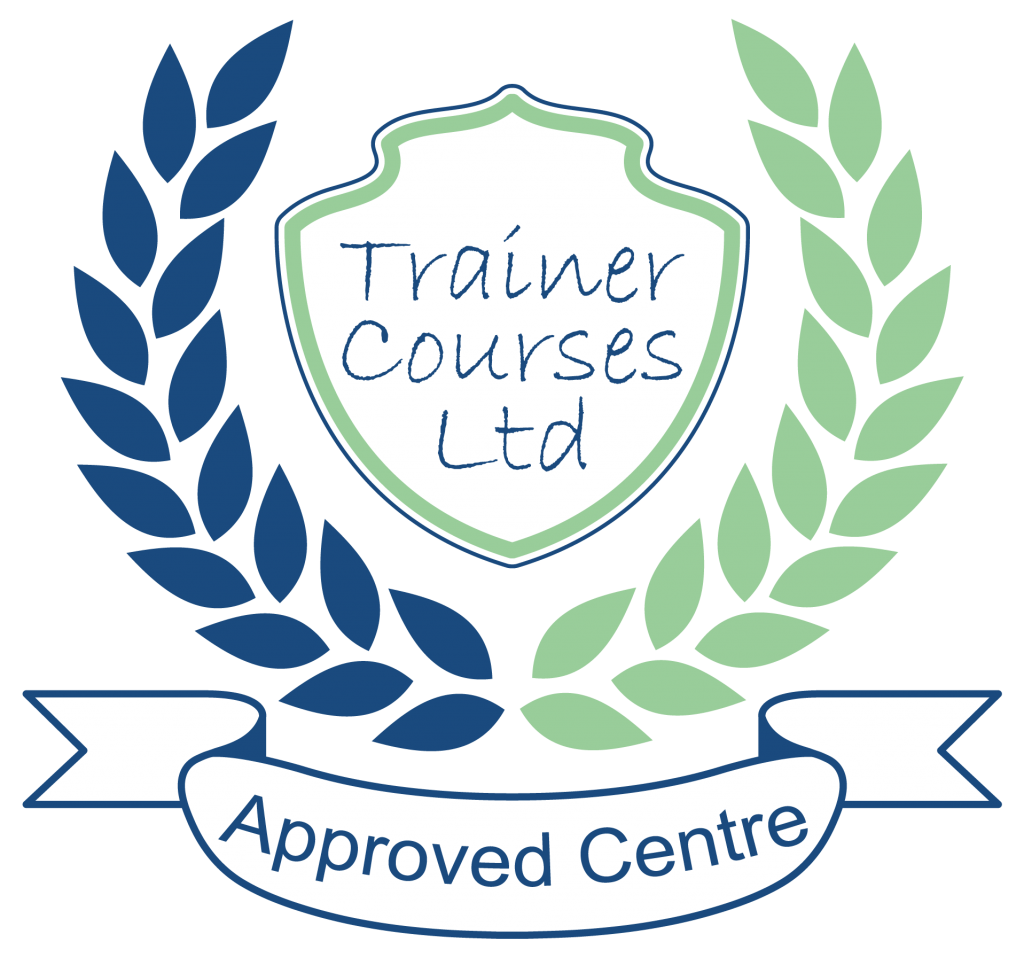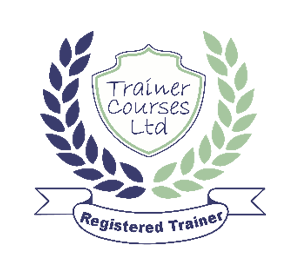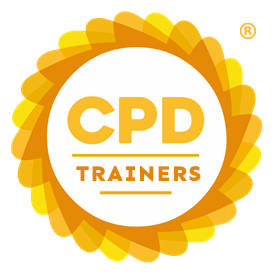Adult Care Courses
Autism is a broad-spectrum condition which affects people in many different ways and requires very individual support. This training course confirms what autism is (including Asperger syndrome), considers different ways which people who are on the autism spectrum may be effected and the characteristics which are associated with the condition.
Course Learning Outcomes
- Understand what autism is
- Understand autism as a spectrum
- Understand challenges associated with autism
- Understand cognitive theories of autism
- Understand sensory regulation in autism
- Understand ways to support people
Course Overview
Basic life Support is life support using little or no equipment. Its aim is to maintain an oxygen supply to the brain and to buy time until the arrival of trained help. It is designed to maintain the Airway and to support Breathing and Circulation.
Course Learning Outcomes
- Demonstrate/describe correct emergency procedure.
- Demonstrate/describe how to perform a primary survey using ABCDE
- Understand the aims of first aid.
- Demonstrate/describe when and how to do CPR on adult
- Understand differences between CPR on children and infants.
- Awareness of the different types of emergency, including Shock, choking
- Cardiopulmonary Resuscitation (CPR).
- Demonstrate/describe how to use an Automated External Defibrillator (AED).
- Demonstrate/describe the Recovery Position.
Overview
Cerebral Palsy affects around 1 in every 400 UK children and is associated with communication and learning difficulties, as well as problems with movement. Delegates who attend this course will learn about Cerebral Palsy in people of all ages, and the many different physical, emotional and psychological effects which it can have. The training fulfils guidelines recommended by the CQC and provides delegates with the understanding they need to support and encourage individuals with this condition.
Outline of Programme
- Introduction to Cerebral Palsy.
- Importance of early diagnosis.
- Causes of Cerebral Palsy.
- Associated character traits.
- Adapting environments to accommodate those with Cerebral Palsy.
- Common misconceptions.
- The three main types – Spastic (most common), athetoid, ataxic.
- Helping with communication.
- Changing needs throughout their life.
- VOCAs, passports and communication books.
- Disability protection legislation.
- Treating the physical impairment caused by Cerebral Palsy.
- Understand the complexity of the disability and how everyone is affected differently.
- Dealing with difficult behaviour.
- Multi Disability and Visual Impairment (MDVI).
- Therapy – physiotherapy, improving quality of life, , emotional effects, psychological effects.
- Encouraging social interaction and communication.
- Associated conditions.
Working with vulnerable children and young people is a rewarding profession, especially when we see young people succeed and achieve. For many reasons however, many children can present different types of challenging behaviours which we need to be able to respond to and manage. This training course considers what challenging behaviour is and how we, as individuals, react to different types of behaviours in different ways and how we all have our own professional limitations.
Course Learning Outcomes
- Understand what challenging behaviour is
- Understand our own reactions to challenging behaviour.
- Understand challenging and positive influences of behaviour
- Understand legislation and regulations relating to challenging behaviour
- Understand requirements of behaviour management planning
- Understand models of positive behaviour plans
Course Overview
This training is aimed at staff working in a range of care settings and ensures that they come away with an enhanced awareness of the principles of good communication and record keeping within their own care environment. They will also benefit from improved communication skills which will prove invaluable in delivering good care and maintaining healthy working relationships.
Course Outline
What is communication?
- Effective methods of communication.
- Models of communication.
- Communication techniques.
- The management of communication.
- Legislation and best practice.
- Effective record keeping.
- Keeping records in a care environment.
- Preventing errors.
Data Protection is a legal requirement for every organisation including services supporting vulnerable children and young people where there are specific requirements relating to the sector which need to be met. Services need to demonstrate that measures have been taken to ensure data is protected, collected, stored, used and shared in a safe and legal way.
Course Learning Outcomes
- Understand the meaning of data protection and sharing
- Understand the role and responsibilities in relation to data protection, sharing and working with children and young people
- Understand requirements of the Data Protection Act (2018) and the General Data Protection Regulations (GDPR) and how these specifically relate to working in children and young people’s services
- Understand how to meet legal requirements in the collection, use and safe storage of data
- Understand how and why data may need to be shared including in the instance of a safeguarding concern or allegation
- Understand actions to take and procedures to follow in the event of an actual or suspected data breach
Drug and alcohol abuse (also referred to as substance misuse) affects millions of people with the social influences of drugs, substances and alcohol is possibly greater now that it has ever been before, especially for children and young people. This course is ideal for people working in social care and education as it covers key topics including the indicators of substance misuse to help raise awareness and spot people who may affected.
Course Learning Outcomes
- Understand what drug and alcohol abuse is.
- Understand drug and alcohol abuse related UK legislation.
- Understand the different classifications of substances
- Understand the different types and categories of substances.
- Understand possible causes and effects of drug and alcohol abuse.
- Understand possible indicators of drug and alcohol abuse.
- Understand the ‘cycle of change’.
Course Overview
Lone working is a broad term which considers situations when professionals may be isolated from colleagues, leading to an increase in vulnerability and risk. This training course broadens out the term lone working to consider the wider range of situations and risks associated with a physical place of work and also when working in communities without supervision, including ‘out of hours’ tasks, being in unfamiliar locations and encountering unknown people.
Course Learning Outcomes
- Understand what lone working is
- Understand lone working related legislation
- Understand lone working tasks and environments
- Understand ways of risk assessing lone working tasks and environments
- Understand ways to be traceable and accountable
- Understand lone working policy and procedure
- Understand the importance of reporting concerns, incidents and debriefing
Course Overview
Mental health is a broad term and is associated with many different conditions which will affect an estimated one in four people at some point throughout life and the causes and challenges can be difficult to understand. Although some people may be more vulnerable that others, everyone has the potential to experience some type of mental health condition at some stage of life.
Course Learning Outcomes
- Understand the meaning of mental wellbeing
- Understand the impact of mental health challenges
- Understand the relationship between stress, anxiety and depression
- Understand schizophrenia and the impact this can have on individuals
- Understand types and characteristics of schizophrenia
- Understand way of providing support to both a person who experiences schizophrenia and professionals who provide support
Course Overview
This course provides candidates with a general understanding of First Aid and how to manage incidents safely and raise the general awareness of what to do in an emergency while waiting for the arrival of trained emergency services personnel.
Course Content
- Managing Incidents
- Basic Life Support - CPR
- Control of Bleeding
- Choking
- Examination of a Casualty
- Unconsciousness
- Head Injuries
- Strain and Sprains
- Shock
Overview
This course is aimed at carers, healthcare professionals and families of those with dementia. This course enables individuals to increase their awareness and understanding of dementia so as to provide better care to people living with it. Delegates will gain knowledge of the difficulties people with dementia face on a day-to-day basis, the stigma sufferers of dementia are labelled with, the challenging behaviour that can surround this condition, and ways to overcome these issues.
Course Outline
- What is dementia?
- Types of Dementia.
- Symptoms of Dementia.
- Understand how dementia affects individuals in different ways.
- Knowledge of how quality dementia care purely focuses on what the person can still do.
- How to reduce the 'Stigma of Dementia'.
- The importance of good communication when caring for someone with dementia.
- Methods to improve the wellbeing of people with dementia.
Overview
This extended day course is designed for health care professionals and would also be ideal for anybody caring for a sufferer of depression, anxiety and/or phobias. The training will ensure that delegates are aware of the triggers and symptoms of these disorders, as well as the effects and impacts which they have on both the sufferer and those close to them. Delegates will also gain an understanding of potential support and treatment methods which they could provide.
Course Outline
- Introduction and explanation.
- Understanding the different types of depression (clinical, reactive, post-natal, seasonal affective disorder).
- Identifying symptoms of depression.
- Knowledge of anxiety and panic attacks.
- Common triggers of depression and anxiety attacks.
- Techniques to help those coping with a disorder, or a combination of them.
- Understanding everyone is affected and impacted differently.
- Discussion of treatments available.
Overview
This course is aimed at all care sector staff and is designed to suit those working with adults, teenagers and children with diabetes. Training helps delegates achieve a general understanding of the challenges facing those with diabetes and the staff who help to manage these individuals. It also prepares delegates to carry out the preventative and reactive actions that can be taken to make care agencies far more effective.
Outline of Programme
- The different types of diabetes.
- Identifying the comorbidities linked to diabetes.
- The principles and benefits of a healthy diet.
- Identifying warning signs and symptoms of hypo and hyper glycaemia.
- How to manage hypo and hyperglycaemic attacks.
- Preventative measures.
Overview
This course is designed for any members of staff who are looking to become the designated fire warden for their workplace. Delegates will learn about causes and effects of fires, as well as how to prevent their spread and implement necessary emergency procedures. The course complies with the Regulatory Reform (Fire Safety) Order 2005 and can be combined with our fire extinguisher practical course for a more intensive training experience to cover all fire risks.
Outline of Programme
- The role of the fire marshal and responsibilities.
- Relevant legislation and guidelines.
- Preventing fires and the spread of them within buildings.
- Fighting fires with both fixed installations and portable extinguishers.
- Fire hazards and causes of fires.
- Emergency protocol, including evacuation, emergency lighting and assembly points.
- Fire alarms, fire drills and safety training.
- Fire risk assessment.
- Understanding categories of fire and how they differ.
- Meaning of the colour codes on fire extinguishers.
- Regular fire safety inspections and keeping a fire log.
Overview
This course is designed for all staff involved in palliative care or who may be likely to care for those approaching the end of their life. Delegates will gain understanding of attitudes and fears relating to the end of life, and the responsibilities of their role as a carer. With this understanding, delegates will be able to create care plans for patients so as to ensure that their final moments are spent in a positive and stress-free environment.
Course Outline
- Introduction and explanation.
- End of life care strategy.
- Attitudes and fears about death and dying.
- Good and bad experiences of death and dying.
- Advanced care planning.
- Symptom management.
- Advance directives.
- Roles and responsibilities in end of life care.
- Last offices.
- Grief and loss.
Overview
New legislation has placed a greater emphasis on the responsibility that businesses have to ensure that all staff hold a sufficient level of understanding of food safety, so as to enable them to work effectively and safely. This online course is designed for staff working at a supervisory level in the food industry, and equips them with an understanding of not only their own workplace safety, but also how they can contribute to the safety of other staff. The e-learning programme has been designed to address the food safety and hygiene needs of the catering, manufacturing and retail sectors, and allows delegates to learn at their own pace and in the comfort of their own home.
Outline of Programme
- Supervisory management.
- Temperature control (chilling, cooking).
- Contamination control.
- Applying and monitoring good hygiene practices.
- Implementing good food safety procedures.
- Contributing to the safety training of others.
Overview
This CPD accredited programme is ideal for those whose daily working role involves the preparation and handling of food; for example, those working in retail, catering or manufacturing. Delegates who enrol on this online course will learn to identify possible hygiene risks and eliminate them in order to maintain a safe environment for food.
Outline of Programme
- Food law and safety regulations
- HACCP
- Personal hygiene
- Your premises
- Food pests
- Cleaning and disinfection
Overview
This course is designed to broaden delegates’ understanding of the importance and necessity of having infection control measures implemented in the workplace. At the end of this online training, the delegate will be able to state the obligations and responsibilities that should be fulfilled when dealing with infection control issues. In addition, delegates will be able to demonstrate hand washing techniques and have an understanding of how to maintain a clean environment.
Outline of Programme
- What is an infection?
- Different types of infection and the body’s mechanisms to fight infection.
- Understand the chain of infection.
- Types of germs and infection.
- How to prevent and control infection.
- The process of effective hand washing.
- Understand how you can help prevent infection spreading.
- Understand the role of the CQC.
- Knowledge of several safe practice procedures.
- Understand the need for infection control and HCAI management.
Overview
This course provides delegates with a greater understanding of what a learning disability is, how they are caused and the best ways to deal with them. The training covers the specifics of several different learning disabilities, ensuring that delegates are understanding of the behaviour associated with them and how to manage a range of challenging scenarios appropriately.
Outline of Programme
- What is a learning disability?
- What causes a learning disability?
- Diagnosis of learning disabilities.
- Learning disabilities and other conditions.
- Understanding challenging behaviours.
Overview
The Deprivation of Liberties Safeguards (DOLS) are part of the Mental Capacity Act (MCA) and ensure the safety and support of vulnerable adults in care. This online training is designed for staff in the care sector, and raises their awareness of the MCA and DOLS guidelines so that they can remain legally complaint. As well as an understanding of this legislation, delegates will be informed of the process of assessing mental capacity and making informed decisions based on their findings.
Outline of Programme
- Comply with the Mental Capacity Act (MCA).
- Understanding the Deprivation of Liberties Safeguards (DOLS).
- What is mental capacity and how does it apply to you?
- Assessing mental capacity.
- Assessment process.
- Responsibilities of the carer.
- Keeping records and reports.
- Impairments or disturbances.
- Making informed decisions.
- Code of practice.
- MCA limitations.
- DOLS assessments.
Course Overview
Over recent years there has been considerable progress in the understanding and social awareness of mental health related conditions which affect millions of people throughout the UK, including personality disorder, but despite a growing awareness of these conditions, this still remains a misunderstood and often confusing condition to understand.
Course Learning Outcomes
- Understand what a personality disorder is
- Understand links between personality, mental health and identity
- Understand possible causes and influences of personality disorder
- Understand different types and categories of personality disorder
- Understand characteristics associated with personality disorders
- Understand how to provide sources of professional treatment and support ideas
Overview
This online training is designed for anyone working in the care sector whose role requires them to create care plans for patients. The e-learning course provides an understanding of patients’ rights and how important it is to ensure dignity, privacy, independence and choice. Delegates will be able to factor this into the care plans which they create and will also learn to implement, develop and review them.
Outline of Programme
- What is person centred care?
- The Principles of Care.
- The rights of the patient.
- Respecting patient privacy.
- Ensuring patient dignity.
- Giving patients a choice.
- Promoting independence.
- Delivering the person centred care.
- Meeting the patient’s needs.
- Creating, developing and reviewing care plans.
- How working practices affect individuals.
- How to maintain boundaries.
- Planning methods.
Overview
This e-learning course is designed for anyone working within the health and social sector, and is a mandatory unit of care induction training. Delegates will gain knowledge of dignity, privacy and respect in relation to current legislation and polices. They will also learn how to implement this understanding to their workplace in order to ensure compliant quality care procedures.
Outline of Programme
- Understand the meaning of dignity, privacy and respect.
- Knowledge of relevant legislation and how it affects an organisation.
- Ability to identify discrimination.
- What makes poor and good practice?
- Supporting specific care needs.
- How to implement change in order to improve care provided.
- Person centred care in conjunction with dignity, privacy and respect.
Course Overview
Millions of children and young people experience bullying every day and the effects can be distressing and have a lifelong impact. This training course defines what bullying is, considers the effects for vulnerable children and young people, discusses the possible reasons why bullying happens and recognises how different types of bullies ‘operate’.
Course Learning Outcomes
Below are the main topics covered in this course, expand each one to see the criteria.
- Understand what bullying is
- Understand reasons why bullying happens.
- Understand methods of bullying
- Understand types of bullies
- Understand different bullying environments
- Understand ways of working with perpetrators of bullying.
- Understand ways of working with people who have been bullied.
Overview
This course is designed for those at a managerial or supervisory level but nonetheless, it would be a great asset to anyone involved in their workplace risk assessment process. Delegates require no prior experience, but a basic understanding of health and safety would be advantageous. The training provides delegates with a knowledge of risk assessment processes and concepts, and the skills required to apply this knowledge in a working environment.
Outline of Programme
- What is a hazard?
- Financial implications of accidents.
- Identifying hazards and risks.
- Process of risk assessment.
- Laws and legislation.
Course Overview
Sexual exploration and play are a natural part of childhood development which helps children to learn about themselves and their own bodies, those of others, social understanding and the diversity of relationships and the boundaries which exist within them. Some children may present sexualised behaviours which could be considered to be outside of the age, stage and rate of development which would be expected and these behaviours can be of more concern to us and risky.
Course Learning Outcomes
- Understand the meaning of ‘healthy’, ‘problematic’ and ‘concerning’ sexualised behaviour
- Understand types of physical and non-physical sexualised behaviour
- Understand factors which can influence sexualised behaviour including; early attachment, educational, social and cognitive development
- Understand potential causes of sexualised behaviour including the impact of trauma and abuse
- Understand ways of working to reduce concerning sexualised behaviours
- Understand ways of providing support and safeguarding
Course Overview
Millions of people in the UK are affected each year by a wide range of issues which can cause them to self-harm, which can be a challenging and emotional experience for the person and their families, friends and supporters. Self-harming is a complex issue and it is important that people providing support know about the possible reasons why self-harming occurs and how this can affect people psychologically as well as physically.
Course Learning Outcomes
- Understand what self-harming is
- Understand social perspectives of self-harming
- Understand influences of self-harming
- Understand the effects of self-harming
- Understand links with self-harming and other conditions
- Understand ways of providing support
Overview
This course is designed for those working in the care sector at a managerial level and ensures that they are equipped with the knowledge and skills required to manage the physical and emotional aspects of safeguarding vulnerable adults. Training will ensure that delegates understand their duty of care and are also able to identify signs of abuse and respond appropriately to any suspicions which they have.
Outline of Programme
- Introduction and explanation.
- No Secrets Act and SOVA legislation.
- Understanding the terms ‘safeguarding of adults’ and ‘vulnerable adults’.
- Rights and responsibilities of vulnerable adults.
- Incorporating risk assessment into care plans.
- Health and safety (physical/emotional).
- Importance of confidentiality.
- Identify abuse and the various patterns.
- How to deal with/report suspected abuse.
- Boundaries
Course Overview
It is a role which often requires a hybrid of working alongside young people whilst leading and motivating teams and individuals through daily tasks and focusing on long term goals. The responsibilities can be broad and can include supervision, recruitment decisions and financial budgets.
Course Learning Outcomes
- Understand the meaning of leadership
- Understand leadership roles and styles
- Understand dynamics of team behaviours
- Understand theory models of leadership and management
- Understand leadership industry regulations and legislation
- Understand the importance of debriefing and wellbeing
- Understand the use of motivational tools in leadership
Course Overview
Training is an important part of any role and sector and requires skilled, competent and professional people to be able to be able to successfully plan and deliver a course of learning. This training course provides people who have the desire and interest in training adults, with the skills and knowledge required to successfully plan, deliver and assess training courses which are relevant to their own sector.
- Understand ways to structure learning
- Understand ways to plan and design courses of learning including administrative tools
- Understand ways to assess transfer of learning/assessment of knowledge
- Understand legal and business requirements of facilitating training
- Understand the importance of rules in training environments
- Prepare for the delivery of a learning activity
- Demonstrate the delivery of a learning activity
- Demonstrate the effective assessment of knowledge




